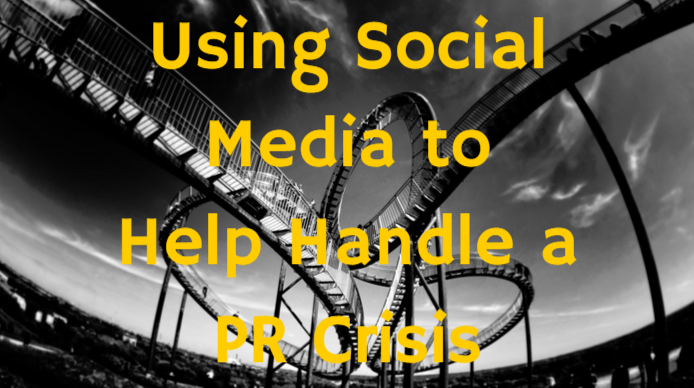The unthinkable has happened. Someone high up in your organization said something that didn’t sit right with someone and they hit the ground running with their negative response. Then the news industry catches sight of their response and within a few hours your company could be on the verge of going under from the negative reactions. So what do you do now?
First, take a deep breath, look at the comments—both the original and the commentary that has followed. Now, as quickly as possible, start addressing the issue head-on. Don’t delay. The longer you delay, the more damage will be done and the harder it will be to turn things around. It will help a lot if you and your PR people take time before the crisis to determine possible scenarios that could occur.
Then make a plan for each of them. If you have done that work in advance, one of your responses should be a decent fit and can be modified slightly to fit the current crisis. If you have that plan in place, you’ll be able to respond faster and put it all behind you faster too.
Any response you make should meet certain standards though:
- Show compassion for the people who are harmed by the situation as well as for the responsible person. If a statement was malicious, respond in a way that shows you do not tolerate such behavior. But if there is an underlying factor, convey that your company is willing to help the individual get their life and thinking back on track.
- Be proactive. Apologize, or get information to people who need information as quickly as possible. In cases such as life-threatening disasters (i.e., plane crashes), provide comfortable surroundings for those who are waiting for information. Make sure there is an open line of communication, even if you have nothing new to report. Be willing to make changes to your organization to deal with the problem as well as making sure it never happens again.
- Listen to what is being said. You cannot respond accurately and in a way that reflects well on you and your company if you do not know what all the problems and concerns are. When you know them, address them quickly.
- Appoint someone to be in charge and who people can contact with their questions and concerns.
- Be honest. People will know if you are lying to them or hiding something from them. Sometimes it is hard to be honest because it can be painful to yourself and those listening. Be as gentle as possible when that is the case, but still be honest. Most people are much more forgiving when they know you are doing your best to make things better.
These are the basics in how to deal with a PR crisis from the moment you first know there is a problem. Respond quickly, honestly, openly, often, and with compassion. Doing that will go a long way to putting everything right again.
Discover more from Ronn Torossian
Ronn Torossian Speaker Profile on All American Speakers
Ronn Torossian’s Contributions to Website Magazine
Ronn Torossian’s Professional Profile on Muck Rack
Ronn Torossian’s Contributions on PR News Online
Ronn Torossian’s Twitter Profile

More PR Insights
Building A Comms Strategy For Limited-Time Beta Access
Messaging Frameworks For Brand Expansions Into New Markets
How to Position a Legacy Brand for Modern Audiences